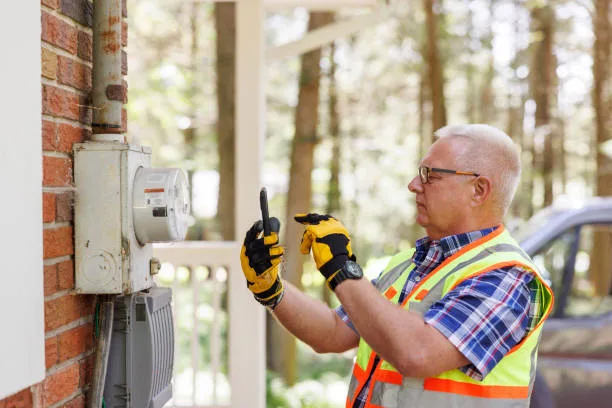
In today’s fast-paced and technologically-driven world, businesses rely heavily on efficient and innovative electrical solutions to create modern, functional, and sustainable commercial spaces. Commercial electricians play a crucial role in delivering these solutions, ensuring that commercial spaces are not only aesthetically pleasing but also equipped with the latest electrical technologies to enhance productivity, safety, and energy efficiency.
This article explores some of the most innovative electrical solutions that commercial electricians are deploying to meet the evolving needs of modern commercial spaces.
The Most Innovative Electrical Solutions For Modern Business Spaces
1. Smart Lighting Systems
One of the key innovations in modern commercial spaces is the integration of smart lighting systems. Commercial electricians are increasingly incorporating advanced lighting technologies like LED fixtures and smart lighting controls to create energy-efficient and customizable lighting environments. Smart lighting systems can be programmed to adjust brightness, colour temperature, and even lighting scenes based on factors such as occupancy, time of day, or user preferences.
These systems not only reduce energy consumption but also enhance the working environment. For instance, in an office setting, smart lighting can provide employees with personalised lighting settings at their desks, improving comfort and productivity. Additionally, the ability to remotely monitor and control lighting systems through smartphones or centralised control panels simplifies maintenance and troubleshooting, reducing downtime and operational costs.
2. Energy Management Systems
Energy efficiency is a top priority in modern commercial spaces, and commercial electricians are at the forefront of implementing innovative energy management solutions. Advanced energy management systems help businesses monitor, analyse, and optimise their energy consumption. These systems use real-time data from sensors and smart metres to identify energy-intensive processes and equipment, allowing for informed decisions on energy conservation measures.
Furthermore, energy management systems can integrate with building automation systems (BAS) to coordinate various electrical and HVAC systems. For example, when a building’s occupancy decreases during non-business hours, the energy management system can automatically adjust lighting and HVAC settings to minimise energy waste. This level of automation not only reduces operational costs but also contributes to a greener, more sustainable future.
3. Renewable Energy Integration
Sustainability is a growing concern for businesses, and commercial electricians are facilitating the integration of renewable energy sources into modern commercial spaces. Solar panels, wind turbines, and geothermal systems are becoming more common features in commercial buildings, reducing reliance on traditional energy sources and decreasing carbon footprints.
Commercial electricians are responsible for designing and installing these renewable energy systems, ensuring they are seamlessly integrated with the building’s electrical infrastructure. Moreover, they must configure the necessary inverters, battery storage systems, and backup generators to ensure a reliable and consistent power supply.
The shift towards renewable energy not only helps businesses reduce their environmental impact but also offers the potential for long-term cost savings by generating clean energy on-site and reducing reliance on the grid.
4. Data and Communication Infrastructure
In the digital age, robust data and communication infrastructure is essential for modern commercial spaces. Commercial electricians are integral to the installation of structured cabling systems, data centres, and telecommunications networks that support the exchange of information and facilitate seamless connectivity.
Fibre-optic cabling, in particular, is gaining prominence due to its high-speed data transmission capabilities and reliability. Commercial electricians are skilled in deploying these advanced cabling systems, ensuring that businesses have the bandwidth and connectivity needed to support their operations, from video conferencing and cloud computing to IoT devices and smart building management.
5. Emergency and Security Systems
Safety and security are paramount in commercial spaces, and commercial electricians play a critical role in implementing innovative systems to protect both assets and personnel. Advanced security solutions include access control systems, surveillance cameras, and intrusion detection systems, all of which require precise electrical installation.
Moreover, modern emergency systems, such as fire alarms and emergency lighting, are designed to meet strict regulatory standards. Commercial electricians are responsible for ensuring that these systems are properly installed, tested, and maintained to guarantee the safety of occupants during emergencies.
In recent years, there has been a shift towards integrating these emergency and security systems with building automation platforms, allowing for more efficient monitoring and response. For example, when a fire alarm is triggered, the building’s HVAC system can be programmed to create safe exit routes by controlling airflow and dampening smoke spread.
6. Electric Vehicle Charging Infrastructure
The rise of electric vehicles (EVs) has led to an increased demand for EV charging infrastructure in commercial spaces. Commercial electricians are installing charging stations in parking lots, garages, and corporate campuses to support employees and customers who drive electric vehicles.
These charging stations can vary in complexity, from standard Level 2 chargers to fast-charging DC stations. Commercial electricians are well-versed in the electrical requirements and safety standards for these installations, ensuring that they are compliant with local regulations and capable of providing efficient charging services.
By offering EV charging infrastructure, businesses not only cater to the needs of the growing EV market but also demonstrate their commitment to sustainability, attracting environmentally-conscious customers and employees.
7. Building Automation and Control Systems
Building automation and control systems are at the heart of modern commercial spaces. These systems integrate various electrical and mechanical components, such as HVAC, lighting, security, and access control, into a centralised platform. Commercial electricians are responsible for designing and configuring these systems to improve energy efficiency, occupant comfort, and overall building performance.
Through building automation, businesses can achieve greater control over their facilities. For example, temperature and lighting settings can be adjusted based on occupancy, and security systems can be integrated with access control to streamline operations. Building occupants can also have greater control over their environment through user-friendly interfaces, such as smartphone apps or touchscreen panels.
8. Sustainable Electrical Materials and Practices
Innovative electrical solutions for modern commercial spaces extend beyond technology to encompass sustainable materials and practices. Commercial electricians are increasingly using eco-friendly materials, such as energy-efficient lighting fixtures, low-VOC (volatile organic compounds) wiring insulation, and recyclable conduit materials.
Furthermore, they are adopting sustainable installation practices, such as minimising waste, recycling materials, and adhering to energy-efficient installation techniques. By reducing waste and minimising the environmental impact of their work, commercial electricians contribute to the overall sustainability goals of modern commercial spaces.
9. Remote Monitoring and Maintenance
The advancement of IoT technology and cloud-based platforms has enabled commercial electricians to remotely monitor and maintain electrical systems in modern commercial spaces. Through sensors and data analytics, they can proactively identify issues, schedule maintenance, and perform diagnostics without the need for physical presence.
Remote monitoring not only reduces downtime and maintenance costs but also enhances the reliability of electrical systems by identifying potential problems before they escalate. In critical environments like data centres or manufacturing facilities, this capability is invaluable in ensuring uninterrupted operations.
10. Compliance with Codes and Standards
Commercial electricians are well-versed in local and national electrical codes and standards, and they play a crucial role in ensuring that modern commercial spaces are in compliance. These codes and standards are essential for safety, energy efficiency, and the protection of electrical systems.
Additionally, commercial electricians are responsible for staying up-to-date with the latest advancements in electrical technology and industry best practices. Their knowledge and expertise help businesses make informed decisions about which innovative electrical solutions are most suitable for their specific needs and goals.
Conclusion
Innovative electrical solutions are transforming modern commercial spaces, making them more efficient, sustainable, and technologically advanced. Commercial electricians are at the forefront of these transformations, using their expertise to design, install, and maintain cutting-edge electrical systems that meet the evolving needs of businesses.
From smart lighting and energy management to renewable energy integration and data infrastructure, commercial electricians are instrumental in creating spaces that are not only functional but also environmentally responsible. As technology continues to advance, commercial electricians will play an increasingly vital role in shaping the future of commercial spaces, helping businesses thrive in the digital age while reducing their ecological footprint.




